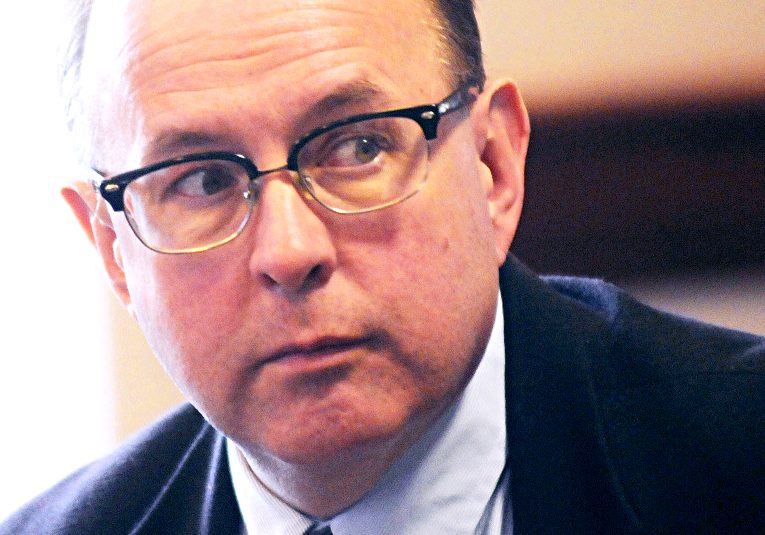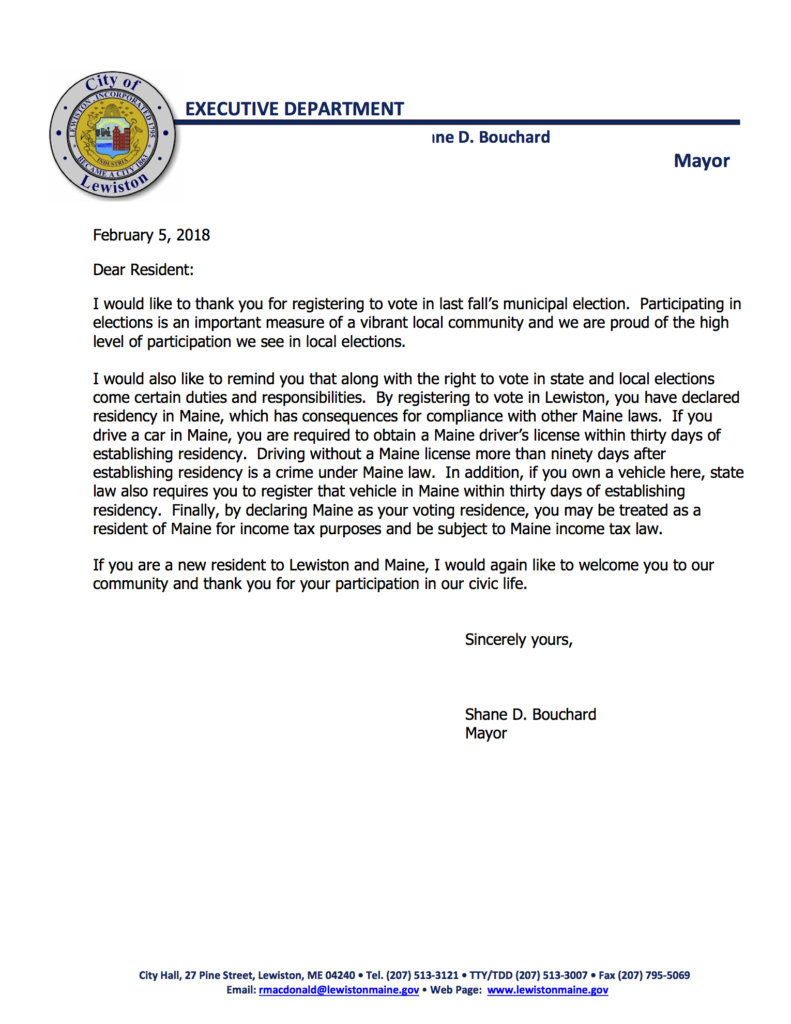LEWISTON — Maine Secretary of State Matthew Dunlap responded to Mayor Shane Bouchard’s recent letter to new voters on Friday, calling it “a disservice to the public discourse.”
Dunlap’s letter to Bouchard came two days after college students and the City Council president criticized the mayor, saying that his statement to new registered voters amounted to voter intimidation.
More than a week ago, Bouchard issued his letter to all 221 people who registered to vote at the polls during last year’s election and mayoral runoff. In it, he laid out the state’s requirements for when someone declares residency in Maine, including getting a Maine driver’s license and vehicle registration.
“By registering to vote in Lewiston, you have declared residency in Maine, which has consequences for compliance with other Maine laws,” Bouchard said in the letter.
In his written response, Dunlap repeated comments he made to the Sun Journal on Wednesday that argued Bouchard’s letter, while factual, implies voting rights hinge on the residency requirements, which “arouses unfounded fear in the minds of the voting public.”
Students at Bates College said the letter causes more confusion by only pulling select information on residency requirements from the secretary of state’s website while not stipulating voting rights.
In his response, Dunlap said, “I do not believe, in the context of voter participation, that offering foreboding warnings of dire consequences from failing to oblige administrative requirements attendant to establishing residency can be construed as anything other than an effort to discourage our fellow Americans from participating in their constitutional right to self-governance – whether you intend that to be the message or not.
“Most importantly, those requirements were not crafted with the intent to pose as barriers that must be overcome before a citizen can exercise the right to vote,” he said.
Dunlap also sent his letter to the City Council and Lewiston’s legislative delegation.
Bouchard’s letter states that driving without a Maine license more than 90 days after establishing residency is a crime under Maine law, and that “you may be treated as a resident of Maine for income tax purposes.”
SUPREME COURT RULING CITED
Dunlap said failing to obtain or update a driver’s license will cause problems – like being called for jury duty in a county in which you no longer live, which happened to Dunlap, or not receiving important notices from the Bureau of Motor Vehicles, but he said “not updating a driver’s license or failing to register a vehicle doesn’t prevent one from voting.”
He also pointed to a 1979 U.S. Supreme Court ruling that said denying college students the presumption of a bona fide residency is a violation of the 26th Amendment.
On Friday morning, Bouchard said he already had sent an email response to Dunlap’s letter, and that he appreciated his response. He maintains that the letter to new voters was only “informational,” and that only about one-third of the recipients were Bates College students.
“My letter has been misconstrued and used for political expediency,” Bouchard said. “Unfortunately we have elected officials who, instead of coming to me for clarification of intent, just started running with an intent of their own.”
City Council President Kristen Cloutier said earlier this week that the letter did not represent the views of the council.
Bouchard said most people he’s spoken to about the letter told him “it’s very reasonable.”
“In the end, we’re making a mountain out of a mole hill,” he said.
Earlier this week, a representative from the Bates College Democrats said Bouchard’s letter was “clearly trying to use scare tactics to suppress turnout among Bates students.”
A request for comment from the Bates Republicans was not returned Friday.
Copy the Story LinkSend questions/comments to the editors.




Success. Please wait for the page to reload. If the page does not reload within 5 seconds, please refresh the page.
Enter your email and password to access comments.
Hi, to comment on stories you must . This profile is in addition to your subscription and website login.
Already have a commenting profile? .
Invalid username/password.
Please check your email to confirm and complete your registration.
Only subscribers are eligible to post comments. Please subscribe or login first for digital access. Here’s why.
Use the form below to reset your password. When you've submitted your account email, we will send an email with a reset code.